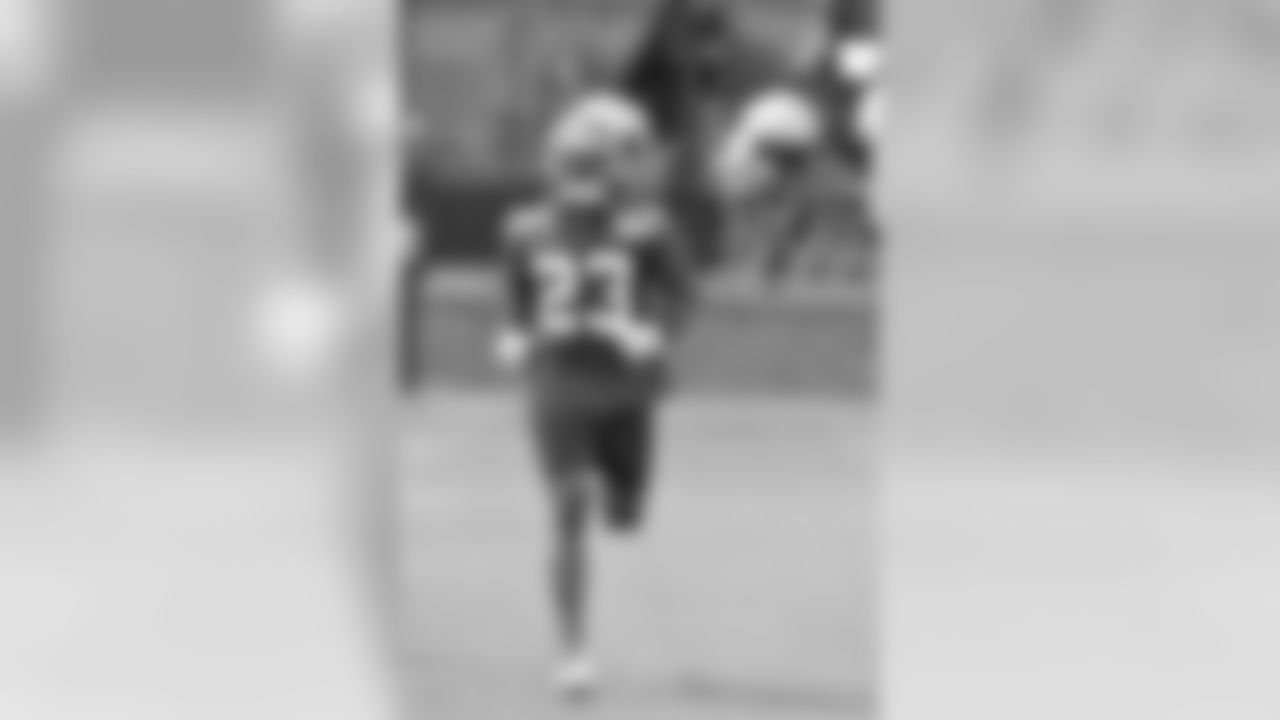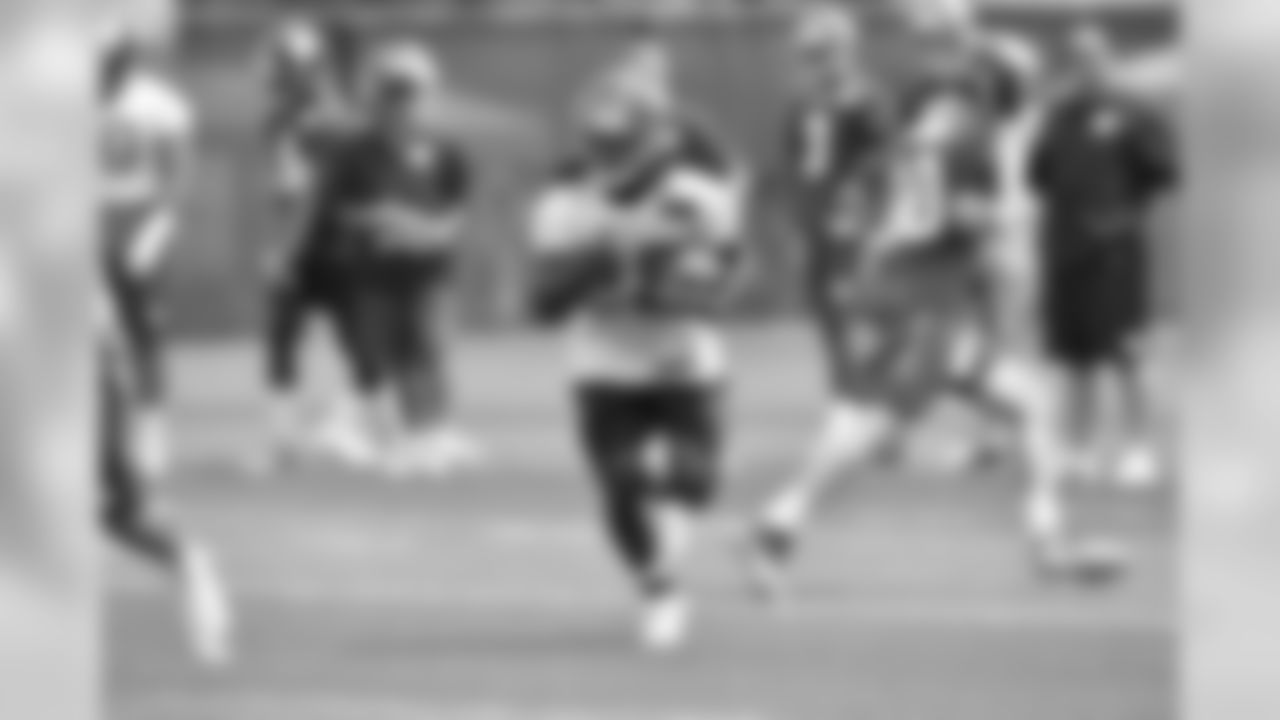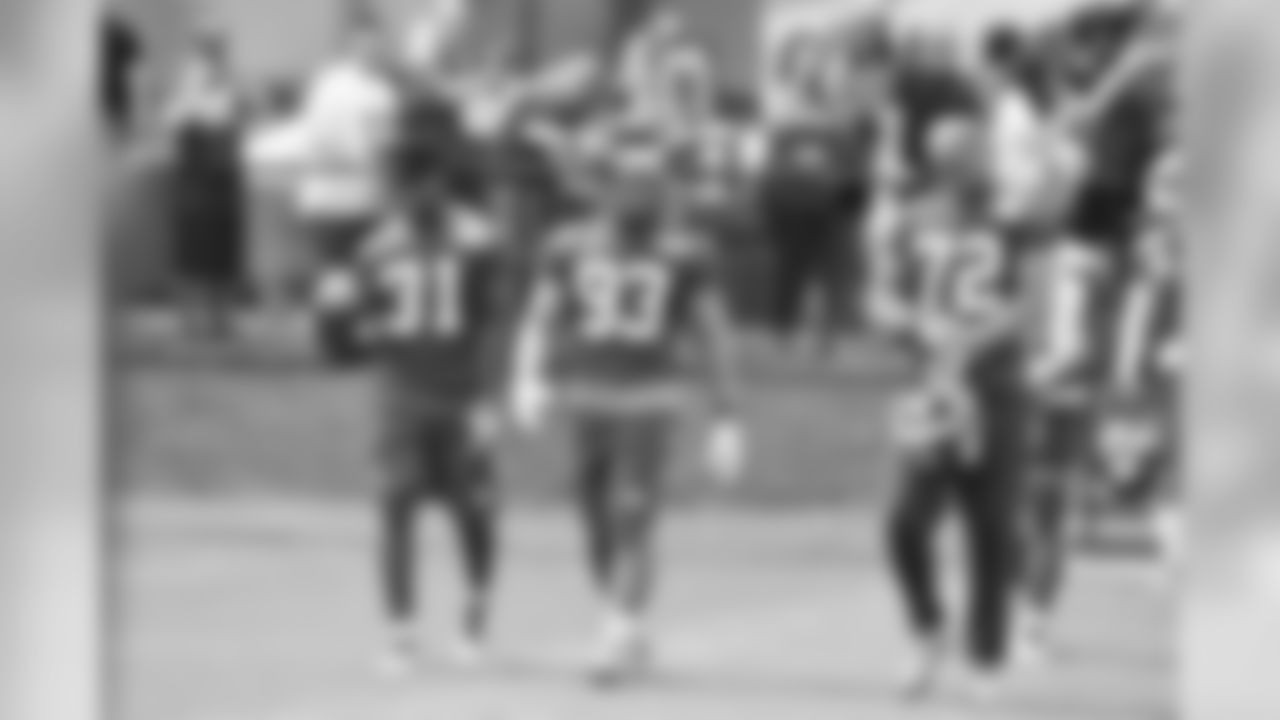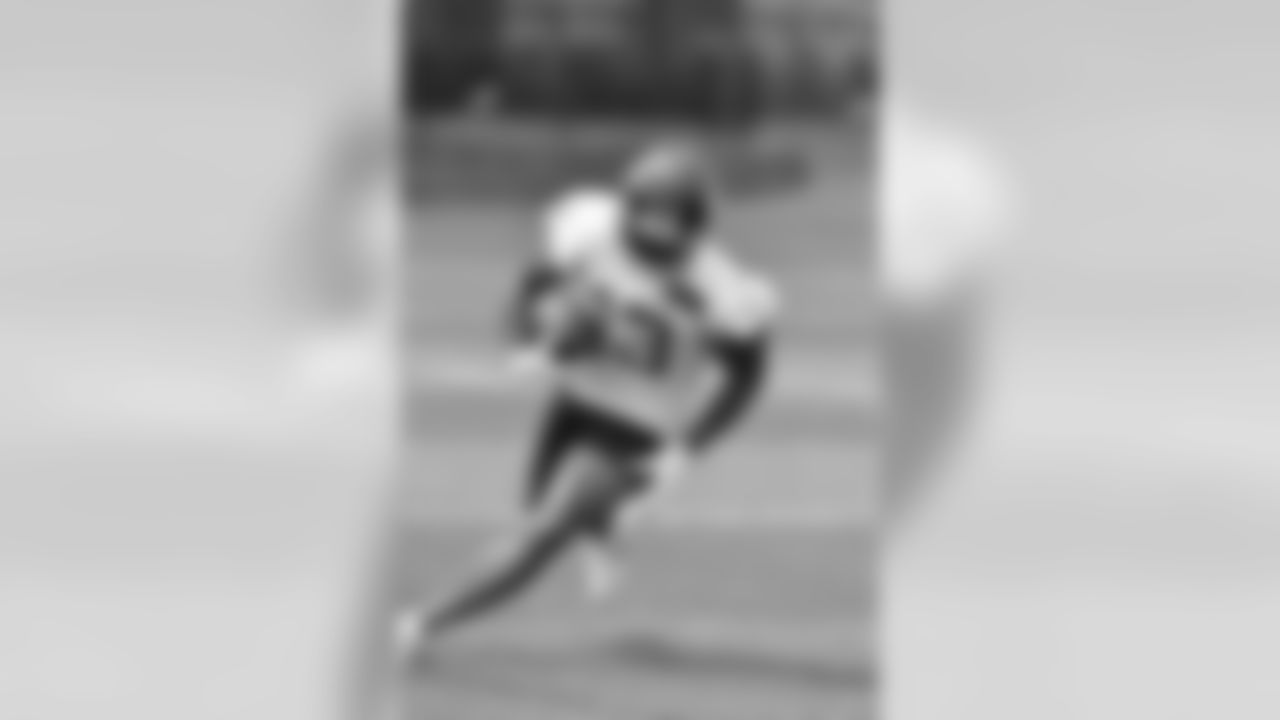Eli Manning will be approaching Training camp the same way he always does and is hoping to continue the offseason momentum.
EAST RUTHERFORD, N.J. – Throughout his now 14-year career, Eli Manning has had comments made by teammates, coaches, and opponents relayed to him by reporters looking for a headline – or at least a good story. And almost always, Manning has responded with little more than a slight movement of his shoulders and a nod.
So it was at his first training camp news conference today, when Manning was asked about comments made yesterday by Jerry Reese. The general manager said that Manning would be on a "pitch count" in camp. The admission that the Giants don't want to overtax their quarterback's throwing arm again spotlighted the fact that Manning is 36 years old. But just like almost everything else, neither that nor the scrutiny on his throwing bothered Manning at all.
"Nothing new," Manning said. "I've been on pitch counts before. I don't know if I'm on an actual pitch count, but there's been a system since (Ben) McAdoo's been here. Kind of having a system of having a heavy throw day, dialing it down with a lighter day after a heavier load. There's always been a system that we've talked about in the quarterback room on which days we're going to take more throws and which days you're going to take a little less. And it's more like an individual period. Once practice starts and you're going against defense, it's all the same. It's just kind of more the warmup period going routes versus air. Those type of things where you can limit 10-15 throws on certain days."
Manning is seventh in NFL history in pass attempts, completions, and touchdown passes, and eighth in passing yards. Is he at all driven by a desire to prove those who question whether he can still perform at his, well, advanced age?
"I know how old I am," Manning said. "I don't think there's anything wrong with being 36. I'm proud of it. Hey, I feel good. I can still make all the throws. I can still run around when I need to. So, it is what it is. But I don't see myself slowing down at all, and I feel like I've still got great football ahead of me."
So does everyone else in the Giants organization.
"I think he's got a lot of good football left in him," president and chief executive officer John Mara said. "He shows no signs of slowing down. I know he's highly motivated to try to win another championship. To me, he looks as good as he ever has, so we're excited about him."
But that won't prevent the Giants from cutting back on Manning's training camp workload when they believe it's warranted.
"It's similar to what we talked about before we left six weeks ago," McAdoo said. "We are going to be real consistent. We are going to treat everyone differently. We are not a one size fits all program here. Those days I think are gone with the way you practice now, and the limited number of reps you get. (With) the limited number of reps you get to develop young players, it's unusual to have someone who's played as many snaps as many of the guys that we have on our team.
"So we are going to get them what they need to be ready to go, and we are going to make sure that we can do our job developing young players and giving them the reps that they need to get to improve down the road. But we take everything into consideration and we are not a one size fits all program. But with that being said, there are not as many reps as there have been in the past, so you have to take advantage of your opportunities. We have days where we acclimate, we have days where we work, and we get everything and squeeze all of the juice out of the orange, and then we de-acclimate after that."
Manning might have fewer opportunities to throw in this camp because the Giants currently have four quarterbacks. In most recent years, they've had three. Veterans Josh Johnson and Geno Smith, and rookie Davis Webb will get their share of work as they compete for the reserve job(s).
"You have three guys going through their first training camp with the Giants," Manning said. "So that's a little different, just having that many young guys. We're having great conversations between the coaches in there and the players just asking questions. Asking me questions. I enjoy it. I enjoy that part of – I think a great way to learn an offense is being able to teach it a little bit. You can really communicate the reads, the conversations, how you want to go over whether you're calling the plays, or letting a receiver know what his route is or what his responsibilities are. I think it helps better prepare me for the season as well."
And that is what's most important regarding the quarterbacks in camp. The backup battle will be fun to watch, but that pales in comparison to preparing Manning for the Sept. 10 opener in Dallas.
And an understated part of that preparation will be closely monitoring how many throws he makes.
"When we acclimate, we have to get the quarterback to the team periods," McAdoo said. "So to acclimate a quarterback he has to get loose and then stay warm, and he has to make the throws he needs to make to stay warm so he can be competitive in the team period. You don't want to warm him up, have him get cold, and then warm him up again. So, that's the challenge. He makes the throws, he needs to throw at the beginning part of practice just to get to practice. He makes those throws to who he needs to make those throws to in practice to build chemistry. It's not just random throws to your equipment guys or your ball boys, or whoever the case may be. It's to the players he needs to get the work in with. So there is a plan for that in place. When he is a part of the normal rotation that's when he has a chance to feel the ball with other players on the roster. But there is a strategic plan to when you acclimate and when you de-acclimate. It's not just the arm, the arm is a small part of it. It's the legs, it's the legs."
Nothing will escape the coaches' scrutiny when they study Manning in the next six weeks.
View the best photos from Friday's Training Camp practice





























